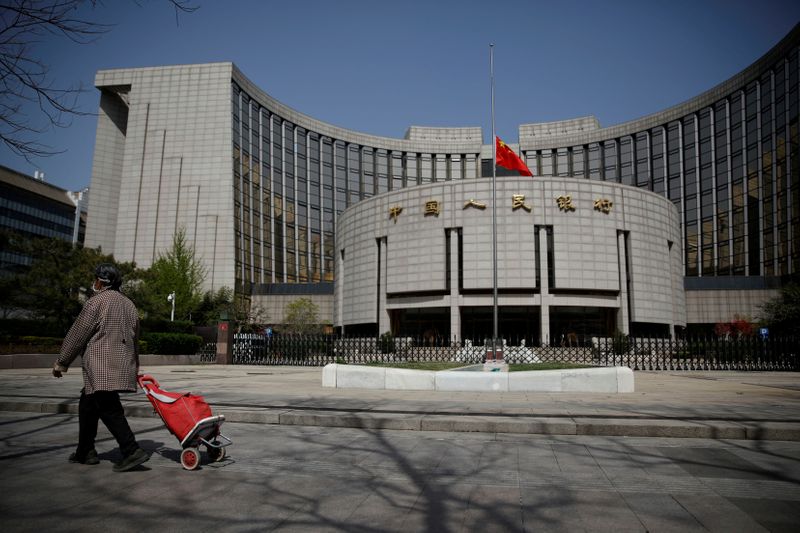SHANGHAI (Reuters) - China's short-term money rates eased to two-week lows on Tuesday as signs of liquidity tension in the interbank money markets started to fade, traders said.
The Shanghai Interbank Offered Rate (SHIBOR) for the one-week tenor, the Chinese yuan equivalent of Libor, fell to 2.241%, the lowest level since Jan. 18, compared with a near six-year high of 3.194% in previous session.
The volume-weighted average rate of benchmark seven-day repo traded in the interbank market dropped to a two-week low of 2.2285% at midday, compared with the previous close of 3.1656%.
Short-term funding cost in China started to pick up earlier last week as the central bank refrained from making its usual substantial liquidity injections to meet high demand for cash ahead of the week-long Lunar New Year holidays, which starts on Feb. 11 this year.
Due to coronavirus fears, authorities are seeking to discourage people from travelling or visiting too many friends and relatives during the break, which should lessen demand for cash this year.
Some analysts say this is one of the reasons why there has been no reduction in the banks' reserve requirement ratio (RRR) ahead of the holiday this year. The other reasons include a desire to avoid creating excess liquidity that could fuel potential bubbles in the property and share markets.
On Tuesday, the People's Bank of China (PBOC) injected a net 78 billion yuan ($12.07 billion) into money markets through open market operations, bringing total net injection to 176 billion yuan so far this week. But it drained a total of 216.5 billion yuan in January. [CN/MMT]
Yuan borrowing also declined in Hong Kong. The CNH Hong Kong Interbank Offered Rate benchmark (CNH HIBOR) for overnight tenor fell to 2.34183%, down from 3.64591% on Monday.
Hong Kong Monetary Authority's (HKMA) 10 billion yuan quota for intra-day yuan funding has been utilised less than 30% on Tuesday morning, according to Refintiv data.

($1 = 6.4603 Chinese yuan)